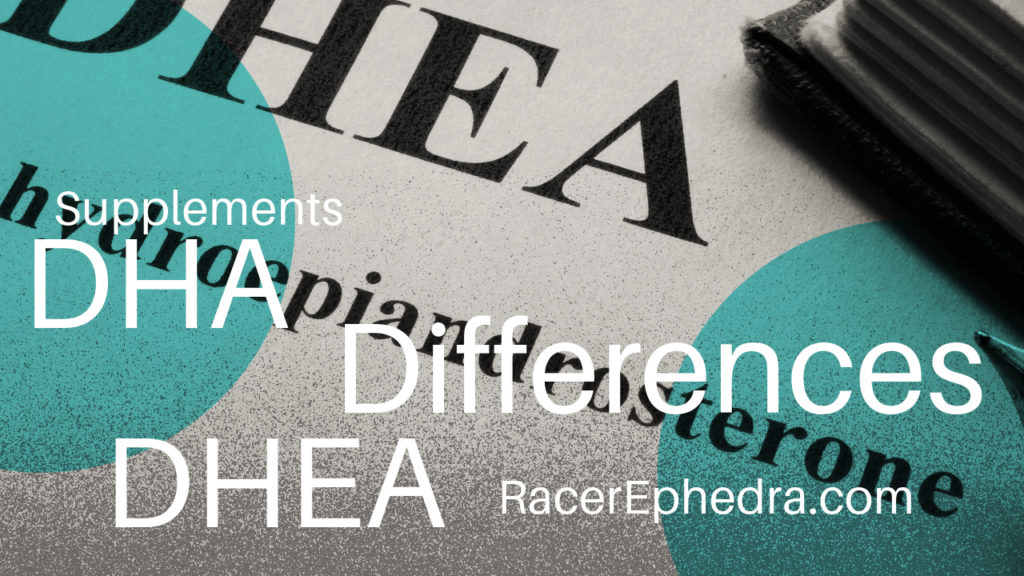In the world of dietary supplements, there are numerous options available to consumers looking to enhance their health and well-being. Two popular supplements that often get confused due to their similar names are DHA (Docosahexaenoic Acid) and DHEA (Dehydroepiandrosterone). While both supplements have their own unique benefits, it’s important to understand the differences between them in order to make an informed decision about which one may be more suitable for your needs. In this article, we will explore the contrasting characteristics of DHA and DHEA, shedding light on their effects, uses, and potential side effects.

What is DHA?
DHA, or Docosahexaenoic Acid, is an omega-3 fatty acid that plays a crucial role in brain development and function. It is primarily found in fatty fish such as salmon, mackerel, and sardines. DHA is a vital component of cell membranes, particularly in the brain and eyes. It is believed to support cognitive function, improve memory and learning abilities, and promote overall brain health. (1)
Benefits of DHA
- Cognitive Function: DHA has been shown to support cognitive function and may help improve memory, attention, and problem-solving skills. (2)
- Brain Development: DHA is essential for the growth and development of the brain, particularly during fetal development and early childhood.
- Eye Health: DHA is a major structural component of the retina, and adequate levels of DHA may help reduce the risk of age-related macular degeneration and other eye conditions.
- Heart Health: DHA has been associated with a reduced risk of heart disease by supporting healthy blood pressure, triglyceride levels, and overall cardiovascular health.
- Inflammation Reduction: DHA possesses anti-inflammatory properties, which may help reduce inflammation in the body and support overall well-being.
What is DHEA?
DHEA, or Dehydroepiandrosterone, is a hormone naturally produced by the adrenal glands. It serves as a precursor for the synthesis of other hormones, including estrogen and testosterone. DHEA levels in the body peak during early adulthood and gradually decline with age. DHEA is available as a dietary supplement and is often marketed as an anti-aging remedy and a way to enhance overall well-being. (3)
Benefits of DHEA
- Hormonal Balance: DHEA supplementation may help restore hormonal balance by optimizing the levels of various hormones, such as testosterone and estrogen.
- Muscle Strength: DHEA has been linked to increased muscle strength and improved exercise performance, making it popular among athletes and bodybuilders. Popular products like Immortal AF. (4)
- Bone Health: Studies suggest that DHEA may play a role in maintaining bone density and reducing the risk of osteoporosis, especially in postmenopausal women.
- Mood Regulation: DHEA has been associated with improvements in mood and mental well-being, with some studies suggesting potential benefits in individuals with depression and anxiety.
- Immune Function: DHEA is believed to enhance immune function and support the body’s ability to fight off infections and diseases.
Differences Between DHA and DHEA
Source and Composition
One of the primary differences between DHA and DHEA lies in their source and composition. DHA is an omega-3 fatty acid primarily found in fish and algae, while DHEA is a hormone produced naturally by the body. DHA is derived from marine sources, whereas DHEA is synthesized from cholesterol in the adrenal glands and gonads.
Function and Mechanism of Action
DHA primarily functions as a structural component of cell membranes, particularly in the brain and eyes. It plays a crucial role in brain development, cognitive function, and eye health. On the other hand, DHEA acts as a precursor hormone, contributing to the synthesis of other hormones such as estrogen and testosterone. DHEA is involved in various physiological processes, including metabolism, immune function, and overall hormone balance. (5)
Targeted Benefits and Effects
While both DHA and DHEA offer a range of benefits, their effects are targeted towards different aspects of health. DHA primarily supports brain health, cognitive function, and eye health. It is often recommended for individuals looking to promote mental clarity, memory, and overall brain function. On the other hand, DHEA is primarily associated with hormonal balance, muscle strength, bone health, and mood regulation. It is commonly used by individuals seeking to optimize hormone levels, enhance athletic performance, and support overall well-being. (6)
Age-Related Changes
Another key distinction between DHA and DHEA lies in their patterns of change with age. DHA levels tend to decrease gradually with age, potentially leading to cognitive decline and increased risk of age-related eye conditions. Supplementing with DHA may help offset these changes and support brain and eye health. In contrast, DHEA levels peak during early adulthood and gradually decline with age. Some individuals may choose to supplement with DHEA to counteract age-related hormonal imbalances and maintain overall vitality.
Safety and Side Effects
Both DHA and DHEA are generally considered safe for most individuals when taken in appropriate doses. However, it’s important to note that DHEA supplementation may have more potential side effects compared to DHA. DHEA can interact with certain medications, and excessive doses may lead to hormonal imbalances or unwanted side effects such as acne, hair loss, and mood changes. As with any dietary supplement, it is advisable to consult with a healthcare professional before starting DHEA supplementation, especially for individuals with underlying health conditions or those taking medications.
Choosing Between DHA and DHEA
When deciding between DHA and DHEA supplementation, it’s crucial to consider your specific health goals and needs. If you are primarily looking to support brain health, cognitive function, and eye health, DHA supplementation may be more suitable for you. On the other hand, if you are interested in optimizing hormone levels, enhancing muscle strength, and promoting overall well-being, DHEA supplementation may be a better choice. It is always recommended to consult with a healthcare professional before starting any new dietary supplement to ensure it aligns with your individual health profile.
Conclusion
DHA and DHEA are two distinct dietary supplements with their own unique benefits and effects. DHA primarily supports brain health and eye health, while DHEA plays a role in hormone balance, muscle strength, and bone health. Understanding the differences between DHA and DHEA can help individuals make an informed decision about which supplement may be more suitable for their needs. It is important to consult with a healthcare professional before starting any new supplement regimen to ensure it aligns with your individual health goals and to monitor for potential interactions or side effects. By choosing the right supplement for your specific needs, you can optimize your overall well-being and support a healthy lifestyle.



